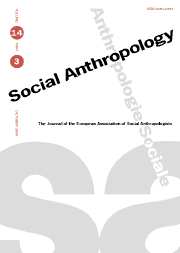Article contents
The perils and prospects for an engaged anthropology. A view from the United States
Published online by Cambridge University Press: 02 December 2003
Abstract
As anthropologists forge a more engaged anthropology, it is important to combat the stereotypes of the discipline that the public holds. The recent controversy over Patrick Tierney's Darkness in El Dorado fed on two of these stereotypes: the ‘evil imperial anthropologist’ who does harm to the ‘good subaltern’ native, and the vision of anthropology as a discipline split between ‘scientists’ and ‘postmodernists’. Neither stereotype reflects the research that anthropologists are currently conducting on critical social issues such as immigration, race relations, health care and indigenous land rights. In order to overcome this disjunction between image and reality, we need, first, to transform our relations with the public; second, continue to change our relations with the communities we study by viewing them as equal partners in research and educational activities; and, third, work out effective ways of researching critical social issues that will expand the influence of anthropology in policy debates. I provide examples from the United States of efforts to accomplish these three goals: the AAA's project for a museum exhibit on ‘Understanding race and human variation’, the Alfonso Ortiz Center for Intercultural Studies at the University of New Mexico, and recent research projects on Medicaid Manage Care and welfare reform.
- Type
- Research Article
- Information
- Copyright
- © 2003 European Association of Social Anthropologists
- 36
- Cited by


